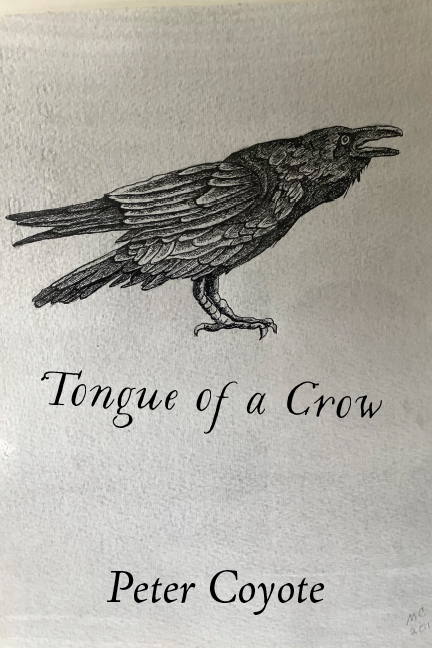
paper • 96 pages • 16.95
ISBN-13: 978-1-945588-95-2
Peter Coyote’s first collection of poetry takes us on a whirlwind tour of an eclectic and exciting life as an actor and Zen Buddhist priest, meandering from love affairs to marriage to divorce to the Sixties to psychedelic spirituality and beyond. Written over several decades, these poems read as a collage, each piece distinct and contributing to a cohesive lyric narrative.
THIRTIETH YEAR
On the verge of the creek’s-edge field
my young dreaming
hard against the turbulent water,
boys new to long pants
trading girlie pix, Viceroy butts behind
the garage. Rods, reels,
silvery spinners shimmering out,
tempting the fish. The whip
of fiber poles, the flash
of line easy as promises to a
girl I thought was stupid.
She turned her head
to check my lips aimed at hers.
Don and Woody weren’t dead
from bullets in eighth grade, released
to the muddy suck of the stream.
Peter Coyote’s poems are every bit as wonderful as his memoirs, rich and lively, sweet and perplexed, full of sorrow and laughter, love and lovers, soul and bodies, Zen and wild mother nature, truth, hope, disappointment, resurrection; ie, Life with a capital L.
Pete’s first poetry collection is a knockout. It reveals the same keen intelligence and wry perspective he showed in his two memoirs, with an eloquent, unique style that lays bare the universal in the deeply personal. He can add gifted poet to his already impressive resume.
Peter Coyote’s new book Tongue of a Crow is incandescent. At first read, his poems are all energy—kinetic universes exploding or imploding, line by line; transformation engines charged with immediacy, sometimes edgy, sometimes elegiac: ‘[m]ixing his mother’s ashes / with birdseed, elbow-deep/in a galvanized pail, / swishing the whispering / seed with ghostly flour, pollinating each grain/with her smoky voice and pearls.’ A Ferris wheel turns at the center of this book, the Big Wheel, and you sense the depth at the core, the apprehension of transience. Utterly personal and specific, these poems channel the impermanence in which we all live and die, not knowing why we love our suffering, certain only that ‘the world is burning.’
Peter Coyote’s poetry is like his work as an actor: subtle, powerful, humble yet blazing with an inner light and heat. This is a work of range and wit and natural beauty. My favorite poem is “Do We All Mourn,” which has this evocative line: “Memory’s a room with drawn shades,/light seeping around the edges, but/too dark to read.” The whole collection is haunting, poignant and dazzling.